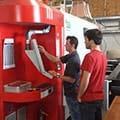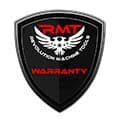Let’s Get Cultured
As a metal fabrication shop owner or manager, you may have attended a business management seminar and heard the term “corporate culture” during your training. If so, you might have thought that it sounded like a fancy phrase that didn’t really apply to a small business like yours.
The simple truth is that every business has a culture, whether it is a two-man shop or factory employing 500 workers. Your shop’s culture is its sense of identity and the core values around which you expect your employees to gather and adopt as their own. A good corporate culture is what turns a collection of personnel into a dedicated, successful team.
While no two companies have identical corporate cultures, there are four common types that can describe almost any department, business, or organization:
- Hierarchy Culture. A very structured, controlled environment.
- Clan Culture. Coworkers are treated like family.
- Market Culture. A competitive culture where success comes before anything else.
- Adhocracy Culture. A creative, risk-taking management ideology. (Adapted from the term “ad hoc,” referring to dealing with issues as they happen.)
Your fab shop will likely lean into one of these general categories. Clan and Adhocracy Cultures offer more flexibility and freedom to act, while Hierarchy and Market Cultures emphasize stability and control. If a company has a largely internal focus (such as stressing employee development or collaboration), it likely embraces a Clan or Hierarchy Culture, while if its focus is mostly external (learning about competitors and customers), then it probably has an Adhocracy or Market Culture.
Benefits of a Good Corporate Culture
Small businesses like your metal fabrication shop should be concerned about corporate culture for several important reasons:
- Organizational Values. A strong corporate culture helps define and reinforce the company’s core values and principles. This alignment ensures that everyone in the organization understands and works towards common goals.
- Team Collaboration. A healthy corporate culture fosters collaboration and teamwork. When employees feel comfortable working together and are aligned with the company’s values, they are more likely to share ideas, work well in teams, and achieve common goals.
- Employee Engagement and Productivity. A positive corporate culture can boost employee morale and motivation. When employees feel engaged and connected to the company’s values and mission, they are more likely to be productive and committed to their work.
- Employee Well-Being. Caring for your employees’ well-being is not just a moral imperative but also makes good business sense. An affirmative culture that prioritizes work-life balance, mental health, and employee development can contribute to a happier and healthier workforce.
- Risk Mitigation. A well-defined corporate culture can help guide employees in making ethical and responsible decisions. This can reduce the risk of legal and ethical issues that could harm the business’s reputation and finances.
- Talent Attraction and Retention. A robust corporate culture can help attract and retain top talent. Potential employees often consider a company’s culture when evaluating job opportunities. A positive culture can make your business more appealing to prospective hires, and it can also help retain current employees, reducing turnover and recruitment costs.
- Innovation and Adaptability. A culture that encourages innovation and adaptability is essential for small businesses to stay competitive. A culture that values creativity and learning can lead to new ideas and solutions, helping the business evolve and thrive in changing market conditions.
- Customer Experience. A constructive corporate culture can influence how employees interact with customers. When employees are happy and motivated, they are more likely to provide excellent customer service, which can lead to customer satisfaction and allegiance.
- Brand Image. Corporate culture can impact your shop’s image. A positive culture can create a strong and attractive brand identity, which can differentiate your small business from competitors and attract a loyal customer base.
- Long-Term Success. Building a positive corporate culture is an investment in the long-term success of the business. It can help the organization weather challenges, adapt to changes, and remain resilient over time.
Defining and Improving Your Corporate Culture
There are several steps that can be used to get a good sense of your current corporate culture. First, does your shop have a mission statement? If so, does that mission statement define your company’s values? Your business’s values are those principles which ideally will shape the decisions and behaviors of everyone in your company. Some examples of corporate values could include accountability, transparency, employee wellness, and dedication to meeting customers’ needs.
Next, ask your managers and supervisors to describe the culture of your fab shop, then ask your employees to describe their experiences in working there and see how well those accounts line up. Also look at any documentation you have for exit interviews when an employee might have been somewhat more forthcoming about their time at your shop. In addition, look at online customer reviews as well as any complaints that you may have received. This data will help reflect how effectively your business’s core values have been implemented in your day-to-day operations.
The most effective company cultures are built around the relationships of coworkers with each other, with management, and with customers. Always take note of how members of your team communicate and how well they work together. See if mutual respect exists on the shop floor and if ideas are freely shared when team members work together on a project.
To improve the culture of your business, hold regular staff meetings where part of the discussion revolves around corporate culture. Involve everyone in evaluating whether your core values and goals are realistic or whether they should be modified. Since your employees are those most affected by your culture, ask them directly what they’d like changed about it. Plan ways of implementing your culture into the staff’s daily activities.
Your shop’s culture outlines your expectations for how your personnel will work with each other and with customers, all while achieving the goals of the company, so it is essential to the success of your business that you map out and follow a healthy corporate culture.







